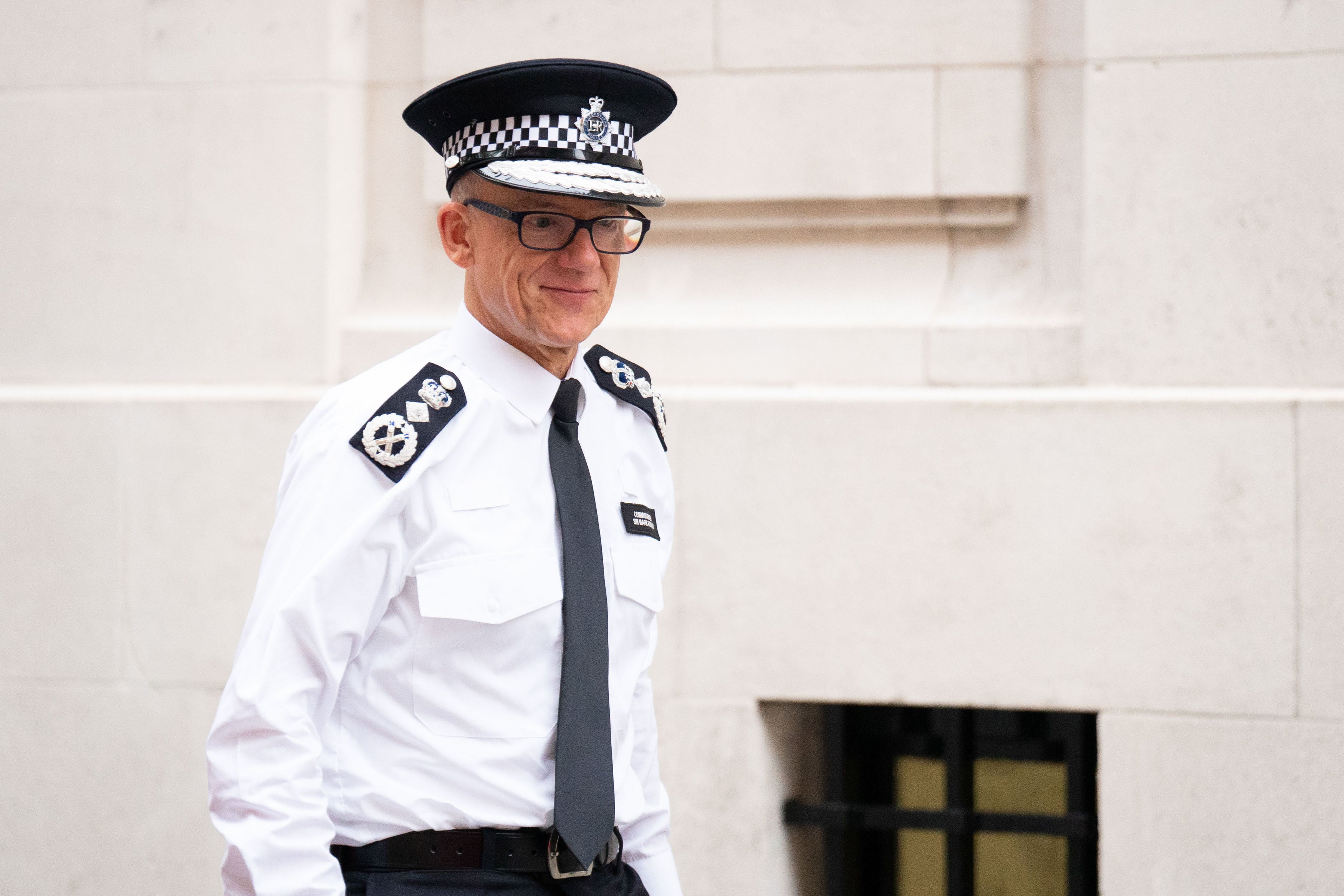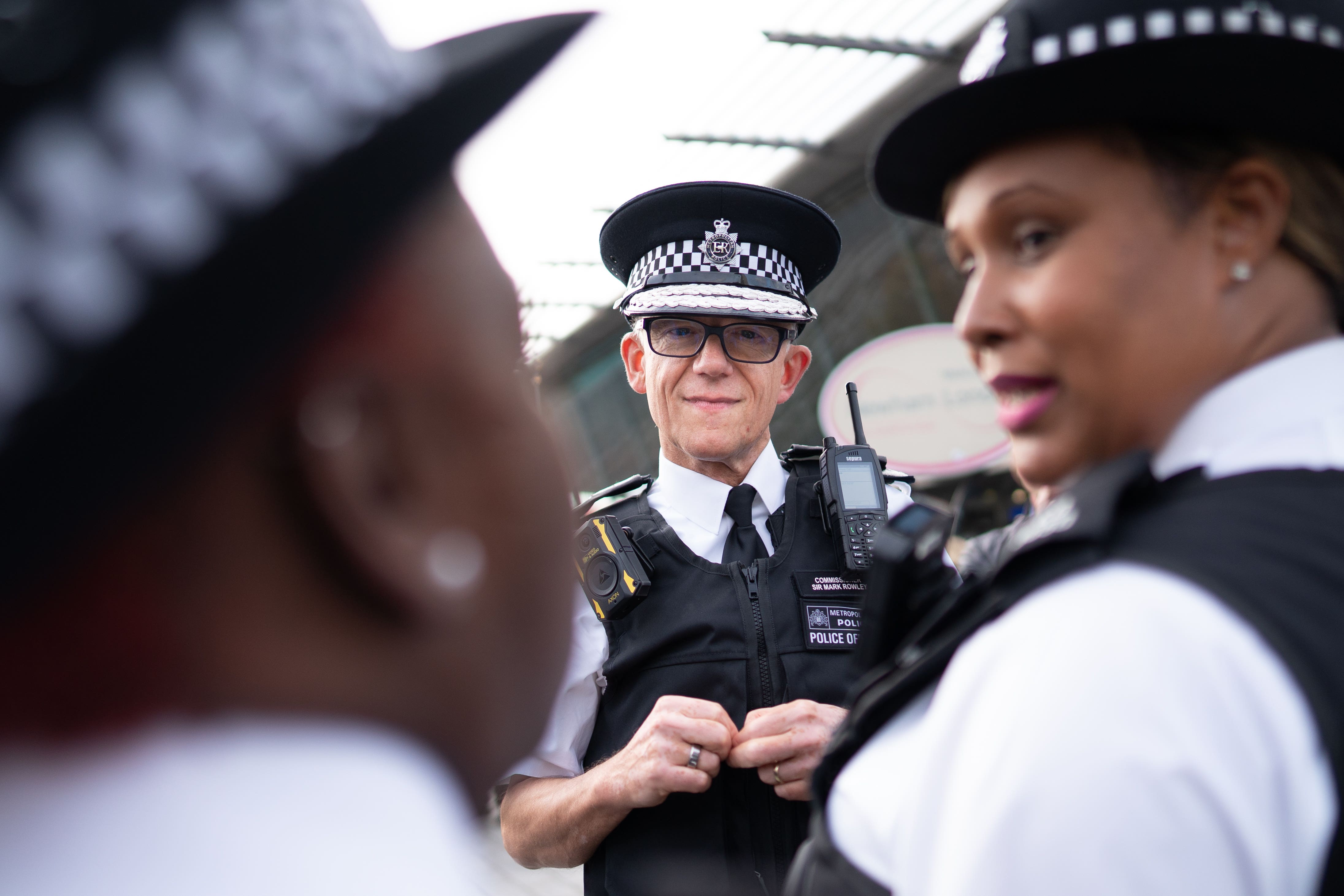Met Police chief calls for more flexible ways to recruit officers to fight modern crime
The Metropolitan Police commissioner lay out his vision for the future of the force

Police need more flexible ways to recruit officers to deal with modern crime, the UK’s most senior police officer has said.
Laying out his vision for the future of the Metropolitan Police, commissioner Sir Mark Rowley said fraud - now the country’s most commonly-experienced offence - and cyber crime required “really niche skills”.
He said that current recruitment structures left him powerless to hire experts who could not also be “deployed against a violent drunk”.
Sir Mark said that it was “frankly unrealistic” to expect police forces to be able to draw specialist detectives and multi-tasking constables from the same pool of recruits, who must currently fulfil the same requirements.
Confirming that he was open to employing autistic and neuro-diverse people, the commissioner said: “We all have things we are more and less suited to, and [I want] more flexibility in our employment model to deal with that.”
Speaking at the Institution of Technology and Engineering in London on Tuesday evening, Sir Mark also questioned the historic model of 43 regional police forces in England and Wales.
He said the system was “not how you would design it” to respond to modern crime, which transcends regional, national and international borders.
Sir Mark called for the government to either strengthen and fund current partnerships that focus on serious organised crime, fraud and terrorism, or to “go the whole hog and create regional police forces”.
He warned that the current “degree of difference” for different parts of the country was not delivering “policing fit for today” and called for more funding.
The commissioner said that international comparisons suggested England and Wales have fewer police officers per capita than many EU countries and that New York has five officers for every four in London.
“The Met would need a 27 per cent increase in funding, £878 million, just to match the spend 11 years ago,” he warned. “When you look at officer recruitment, retention and morale in a context where large parts of the public sector is preparing to strike, it’s urgent to get that right.”

Echoing warnings by other police leaders, Sir Mark said his officers were dealing with a large proportion of mental health calls and those generated by the “struggling” NHS, adding: “We are doing other agencies’ work to the detriment of policing.”
Speaking of his priorities for London, Sir Mark renewed his commitment to rooting out corrupt and misogynist officers following the murder of Sarah Everard and a series of scandals.
The Metropolitan Police is currently among a record six forces in special measures, but Sir Mark said he would soon publish a detailed “practical plan for turning things around“.
He said Scotland Yard was bolstering neighbourhood policing, assessing the locations of its police stations and facilities, and bringing more “precision” to the way it responds to and prevents crime.
The force is working to create a “full list of predatory men in London”, he added, aiming to prioritise efforts to deal with rapists, sex offenders, domestic abusers and stalkers that present a risk to women and children.
It will include tens of thousands of men, including those who have already committed offences, suspects on the loose and those who are the subject of intelligence suggesting they are “predatory offenders”.
“Too many men in our city use violence to instil fear, to exploit for sexual purposes or for financial gain,” Sir Mark said. “Too often their victims are women and children, often these men create such fear they can act with impunity – seeming to be untouchable.”
The commissioner, who is the former head of UK counter-terrorism policing, said he wanted to apply a similar approach to that deployed by the security services in order to “rank” the greatest threats.
“With data you can start identifying who are the most dangerous 100 you’re going to throw resources at, who are the next 1000 you want to monitor in a different way,” he added.
“Sadly for women and children in London this is tens of thousands of people.”
Sir Mark said it would take months to compile the list before any analysis can start, but that he ultimately wanted to “change how we police”.
Join our commenting forum
Join thought-provoking conversations, follow other Independent readers and see their replies
Comments


Bookmark popover
Removed from bookmarks